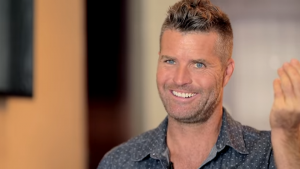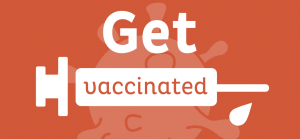ABC (the Australian one) reports celebrity chef wannabe Pete Evans (right, exactly as shown) has been permanently booted off Instagram for sharing misinformation about coronavirus and vaccines.
 Pete Evans’s Facebook page was removed last year, but he continued posting misinformation on Instagram, which Facebook owns
Pete Evans’s Facebook page was removed last year, but he continued posting misinformation on Instagram, which Facebook owns
Facebook last week expanded the list of false claims it will remove, adding more about coronavirus and the vaccines.
The company no longer tolerates false claims the virus is man-made, that the disease is safer than the vaccine, that vaccines are toxic, dangerous, or cause autism
Facebook confirmed it deleted Mr Evans’s account on the popular picture-sharing platform on Wednesday.
The account had hundreds of thousands of followers.
Celebrity chefs are just so full of bad food safety information (except for Alton Brown).
“We removed Pete Evans’s account for repeatedly sharing debunked claims about the coronavirus or vaccines,” the company said in a statement.
“We don’t allow anyone to share misinformation about COVID-19 that could lead to imminent physical harm or about COVID-19 vaccines that have been debunked by public health experts.”
Mr Evans’s Facebook page was removed in December, but he continued to share misinformation through Instagram, which is also owned by Facebook.
Facebook had earlier removed several of the chef’s Instagram posts for violating its policies on misinformation.
Facebook’s COVID-19 and vaccine misinformation policies were updated last week, with the company vowing to crack down on false claims.
Mr Evans was a judge on My Kitchen Rules between 2010 and 2020.
 He has repeatedly made posts opposing COVID-19 vaccines and masks, shared discredited coronavirus cures, and claimed in a podcast that the coronavirus is a hoax.
He has repeatedly made posts opposing COVID-19 vaccines and masks, shared discredited coronavirus cures, and claimed in a podcast that the coronavirus is a hoax.
Mr Evans regularly used his Instagram account to cast doubt on official information about COVID-19, vaccines, and other parts of mainstream science.
His company was fined more than $25,000 by the Therapeutic Goods Administration (TGA) in April after he promoted a device called a “BioCharger” on a Facebook live stream, claiming it could be used in relation to coronavirus.
The TGA said the claim had “no apparent foundation”.
Mr Evans announced last week he would run for federal parliament, standing as a Senate candidate for a fringe party set up by former One Nation senator Rod Culleton.
Who knows, he may get some votes: On Saturday more that 1,000 clogged roads in downtown Brisbane to protest against the vaccine as the first inoculations were conducted in the federal capital of Canberra. Vaccines begin Monday in Brisbane.
As a risk communication dude, I am however concerned with the approach being taken by the Australian Capital Territory to win over anti-vaxxers. The Canberra Times reports the ACT government will launch a major public information campaign as part of efforts to counter anti-vaccination messages amid concern vaccination rates could be affected by misinformation. Flyers making false and misleading claims about vaccines have been distributed to households in Canberra in recent days, prompting renewed calls for people to stop undermining public health information.
On Saturday, about 150 people, including some affiliated with far-right groups, gathered near the Carillon on the shores of Lake Burley Griffin to protest mandatory vaccinations – despite no such initiative being proposed.
Ms Stephen-Smith said, “We aim to provide informative, trustworthy and up-to-date advice to the community so they understand the risks of COVID-19, our responsibilities in helping to reduce these risks and where to access healthcare services.
“As the vaccine program rolls out, we will be ramping up our public health information campaign. This will focus on educating Canberrans about the COVID-19 vaccine, where and when they can access it and how they can find factual and reliable information.”
It’s a leader’s duty to inform rather than educate. Further, the proposal reeks of a failed risk communication strategy: If I could only get that one person or group to change their minds, conflict will be removed. By focusing on vaccine opponents, leaders are not paying enough attention to vaccine proponents and the essence of good science. But I’ll let Jimmy Kimmel explain from 2015:

